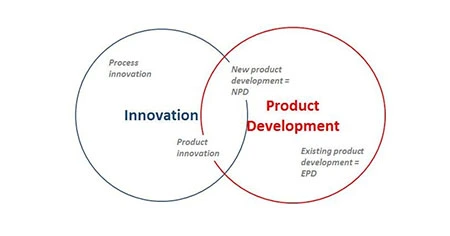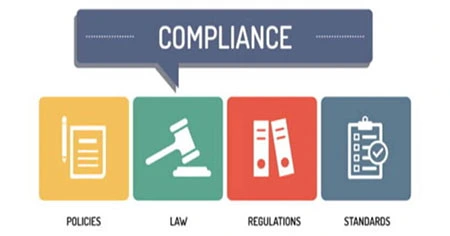The landscape is rapidly changing, with over 500 fintech startups launched yearly. New players are entering the market, and existing players are constantly expanding their offerings to give customers more choices than ever before. As a fintech entrepreneur, you're likely wondering how a fintech app development company can help you ride this wave of opportunities and stay ahead of such fierce competition. This article will discuss How to Integrate AI into Financial Technology Application Development in 2024.
What is AI in Fintech?

Fintech is simply financial technology, and AI is merely artificial intelligence technology. AI in Fintech refers to the digital integration of advanced technologies in the financial sector to improve overall operations and meet user needs.
AI is used in the financial sector to detect fraudulent activities, analyze business trends, receive instant and continuous user feedback, and automate tasks to speed up processes, among many other applications.
The role of AI in Fintech:

FinTech and artificial intelligence (AI) are two cutting-edge innovations recently transforming the financial industry. AI can increase economic growth by 26% and financial service revenue by 34%. Even a few years ago, 85% of financial institutions said they were currently using AI.
According to Dimensional Market Research, the global AI in Fintech market size will be $17 billion by 2024.
The market for AI in FinTech is expected to be $42.83 billion in 2023 and $49.43 billion by 2028, with a CAGR of 2.91% over the forecast period (2023-2028).
The current status of AI in Fintech and Its Impact on the Industry:
Today, AI is more than just an optional technology in Fintech; it is a critical component that drives innovation and efficiency. AI is used by small businesses and large financial institutions to optimize operations, improve customer experiences, and develop new financial products.
Artificial intelligence significantly impacts Fintech, providing benefits such as lower operational costs, improved decision-making accuracy, and increased customer engagement. It also promotes a more competitive and innovative financial market.
How to Integrate AI into Financial Technology Application Development in 2024?
1. Automate customer support and personalization.

AI in FinTech can automate other aspects of customer support besides chatbots and virtual assistants, such as loan processing, account management, and financial advice. These automated processes save financial institutions money and offer customers a more convenient and personalized experience.
AI-powered robo-advisors, for example, can analyze customer data and make personalized investment recommendations based on their risk tolerance, financial objectives, and market trends. This level of customization improves the accuracy of investment advice and builds trust between customers and financial institutions.
2. Effective Risk Management

AI's predictive analytics and machine learning algorithms enable Fintech to assess and manage risks more precisely. This leads to better decision-making, lower fraud rates, and a more secure financial system.
3. Innovative Product Development

AI and Fintech drive innovation in product development. AI-powered technologies enable developing new and advanced financial products that meet changing consumer needs and market trends.
4. Trading and Investment .

AI algorithms are transforming high-frequency trading due to their unparalleled speed and accuracy. These algorithms can analyze large datasets in real-time, revealing hidden market signals and executing trades with extreme precision. Investors benefit from AI's transformative trading and investment capabilities, allowing them to capitalize on opportunities at optimal times, maximize returns, and minimize risks.
5. Regulatory compliance

Because AI systems can detect anomalies and discrepancies in financial transactions in real-time, they can be an effective tool for any organization's compliance tracking process. The detected non-compliant transactions are quickly blocked, preventing the app development company from perpetuating fraud and illegal activities. AI can help financial institutions protect their reputation, ensure regulatory compliance, avoid fines, and prevent user funds from being stolen.
6. Investment Portfolio Management

AI portfolio management services optimize investment portfolios by analyzing market data, risk preferences, and investment goals. They can automatically rebalance portfolios in response to market changes, ensuring that investment objectives are met while risk tolerance is maintained.
7. AI-powered financial advisors

AI-powered digital assistants, similar to chatbots for customer service, can assist FinTech app users by offering financial advice and personal financial management services.
These digital assistants can help users make sense of their financial plans based on their spending habits, bank statements, and other information, allowing them to improve their asset management. Additionally, AI-powered advisors can guide users toward diversified asset classes and alternative investment opportunities. For those seeking to expand beyond stocks and digital assets, exploring the best gold coins to invest in may offer valuable portfolio diversification as these historically proven hard assets remain an essential hedge against economic uncertainty. Resources detailing how to research and choose the right gold coins can help investors make informed decisions alongside their FinTech-derived strategies.
Such AI-powered advisors will make use of natural language processing capabilities. They can use machine learning algorithms to study the patterns of a user's transactions; they can also use a product recommendation model.
8. Credit scoring

AI-powered credit scoring assesses an individual's creditworthiness using machine learning models considering a broader range of data, including nontraditional sources. This method ensures a more accurate and inclusive credit assessment, which is especially beneficial for individuals with limited credit histories.
9. Save money and resources.

Conclusion








